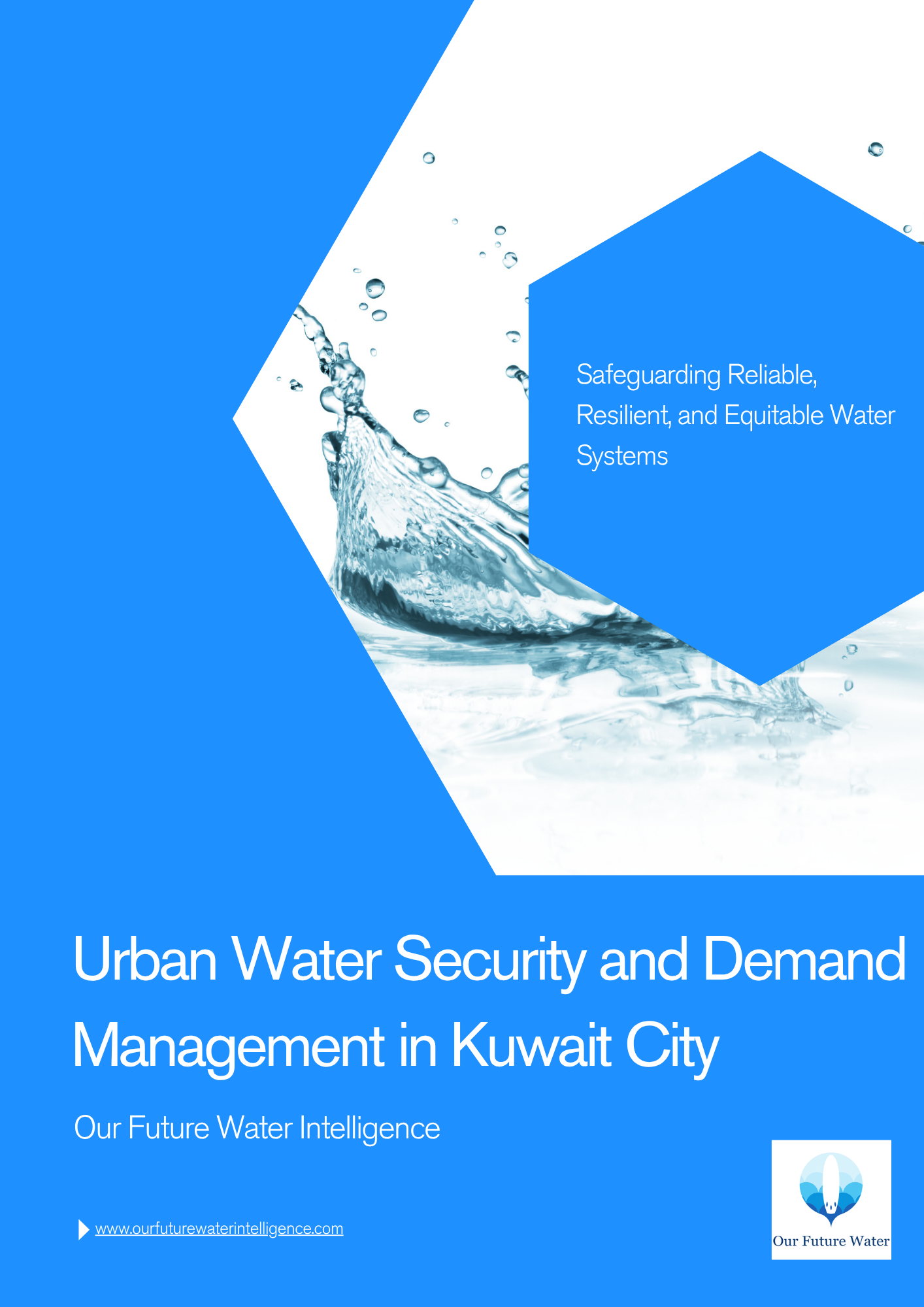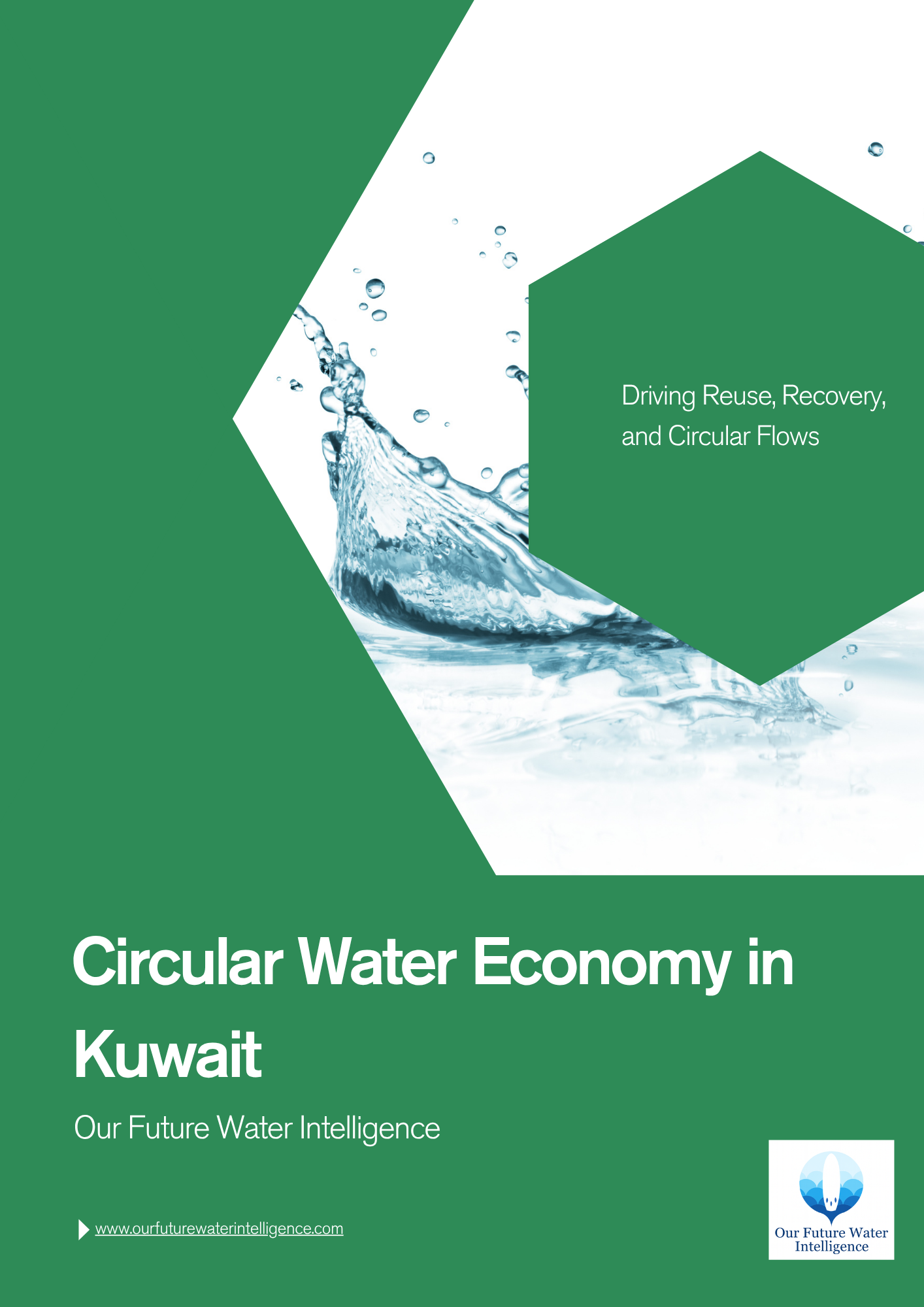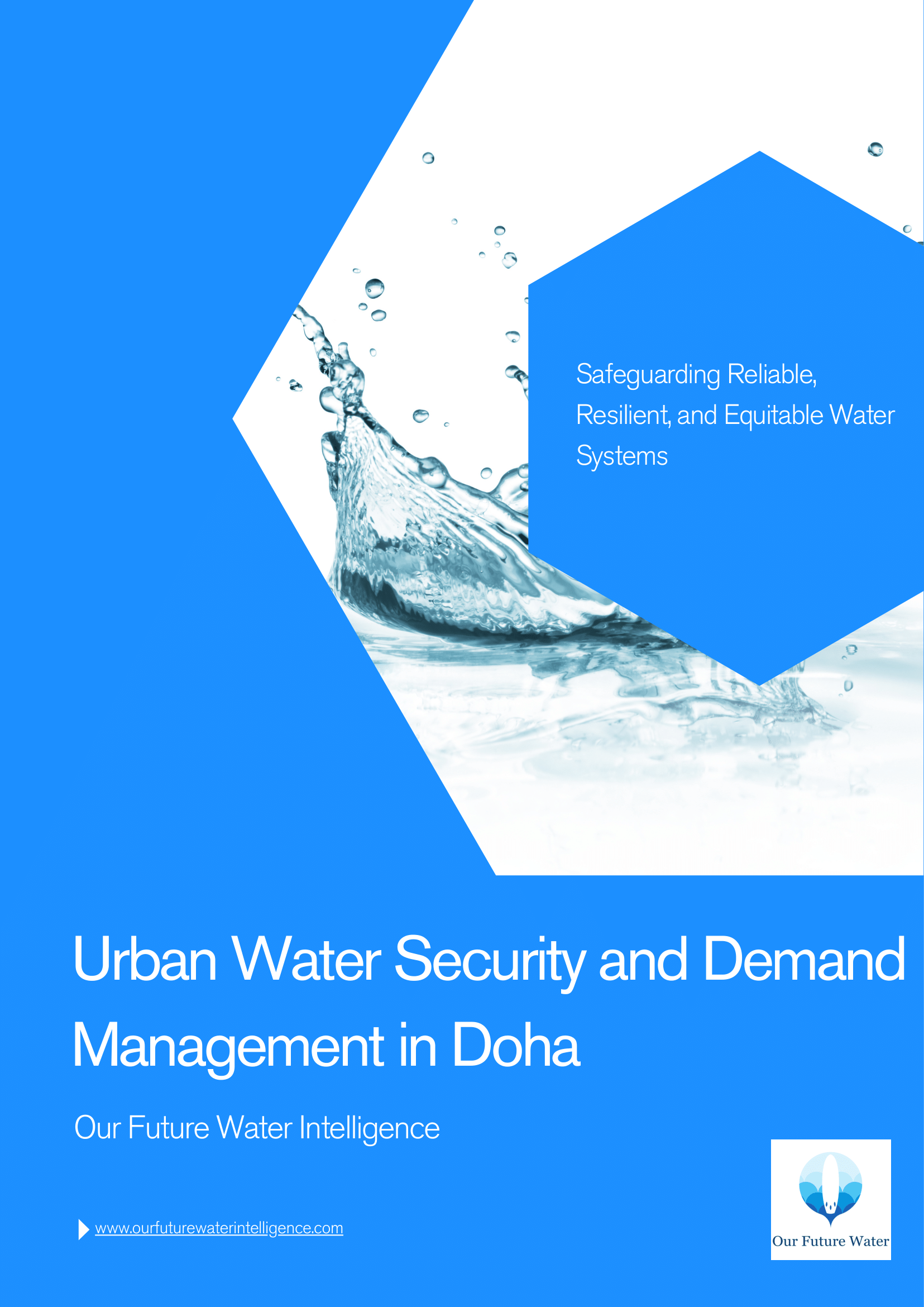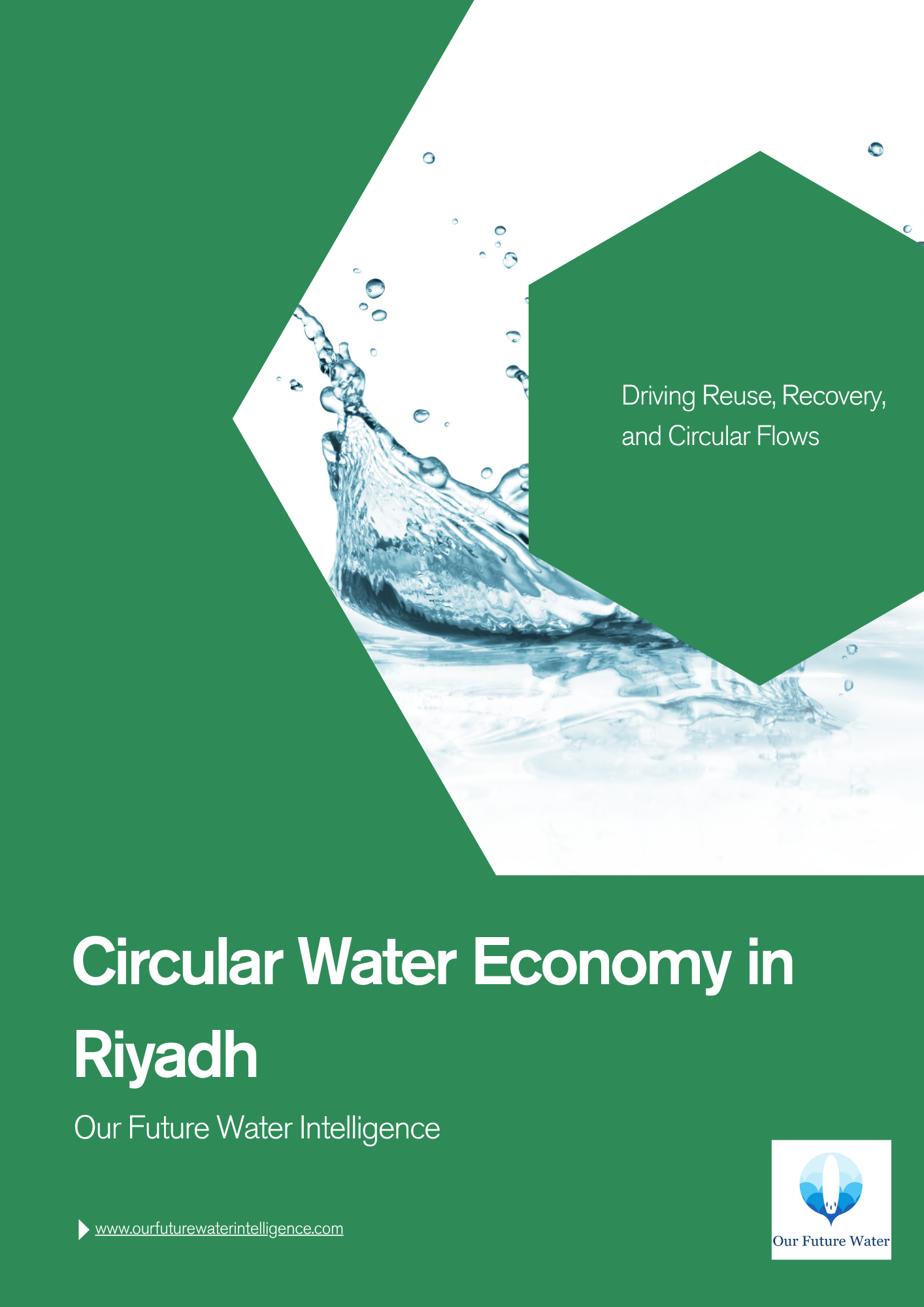
Urban Water Security in Kuwait City – Demand, Reuse & Governance
Our Future Water Intelligence has released its latest publication, Urban Water Security and Demand Management in Kuwait City, authored by Robert C. Brears, Founder of Our Future Water Intelligence and an internationally recognized expert on water security, urban resilience, and sustainability governance.
Published at a pivotal time for Kuwait’s water sector, the report delivers a data-driven analysis of desalination dependency, wastewater reuse, non-revenue water reduction, tariff reform, and institutional modernization. It provides actionable insights for policymakers, utilities, and investors seeking to strengthen urban water security and achieve long-term sustainability under the National Adaptation Plan 2019–2030.
Key Findings
• Desalination Dependency: Kuwait City relies almost entirely on desalinated seawater for potable supply, while brackish groundwater reserves are retained strictly as a strategic backup.
• Wastewater Reuse Expansion: Advanced wastewater treatment and reuse are scaling up, with facilities like Sulaibiya, the world’s largest membrane-based reclamation plant, treating 600,000 m³/day and achieving reuse rates of 58%.
• Energy and Emissions: Desalination remains energy-intensive, responsible for more than 15 million tons of CO₂ emissions annually by 2050, making water production a major source of national greenhouse gas emissions.
• Non-Revenue Water (NRW): NRW levels are estimated at 20% of system input, largely from under-registered meters and unauthorized connections. A nationwide smart-meter rollout aims to install 200,000 units to enhance efficiency and accountability.
• Tariff and Governance Reform: With 95% of water production costs subsidized, reforms under the National Adaptation Plan 2019–2030 aim to modernize tariffs and reduce fiscal pressures while maintaining affordability.
• Infrastructure Upgrades: Expansion of desalination capacity and Public-Private Partnership (PPP) projects such as Al-Khiran Station (33 MIGD) are strengthening supply reliability and improving infrastructure performance.
• Climate Risks: Rising temperatures, frequent droughts, and coastal vulnerabilities from sea-level rise continue to stress Kuwait’s urban water systems.
• Strategic Vision: Kuwait’s approach integrates technological innovation, policy reform, and demand-side management to balance fiscal sustainability with long-term resource resilience.
Expert Insight
“Kuwait City demonstrates how even the most water-stressed nations can build more efficient and resilient water systems,” said Robert C. Brears, Founder of Our Future Water Intelligence. “This report provides policymakers, investors, and practitioners with the insights needed to reduce costs, improve governance, and embed sustainability across Kuwait’s water sector.”
What’s Inside the Report
• Comprehensive overview of Kuwait City’s water supply system, consumption trends, and reuse initiatives
• Detailed assessment of tariffs, subsidies, and modernization under the National Adaptation Plan 2019–2030
• Evaluation of infrastructure assets—desalination, reuse plants, stormwater systems, and groundwater protection programs
• Strategic outlook on efficiency improvements, climate risk management, and fiscal sustainability
• Priority actions: NRW reduction, smart metering, tariff reform, and renewable-powered desalination
Why This Report Matters
Kuwait City stands at the forefront of the world’s urban water security challenges, combining one of the highest per capita consumption rates (447 L/day) with near-total dependence on non-renewable water sources. Yet the government’s commitment to technological efficiency, demand-side governance, and institutional reform is setting the stage for a more sustainable and resilient future.
This report equips decision-makers, utilities, and investors with authoritative intelligence to navigate Kuwait’s complex water landscape, enhance policy design, and strengthen operational resilience for decades ahead.
Read the full report: Urban Water Security and Demand Management in Kuwait City



